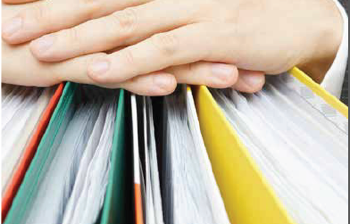Please download this article as a PDF
Download PDFHow can you reduce your capital gains tax bill in 2018/19?
Whether you’re a buy-to-let landlord, a shareholder, an art dealer or you fall somewhere in between, the chances are you will be familiar with paying capital gains tax (CGT).
CGT is payable when you ‘dispose’ of a certain item and make money from the sale, with the amount you’re liable for depending on your income and the asset in question.
These could be personal items worth more than £6,000, a second home or even shares you own in a limited company.
CGT is due when you sell or give these assets away, classed as ‘disposing’ of an asset in the eyes of HMRC.
For example, you buy a house for £170,000 with the intention of letting it out to tenants and manage to sell it for £210,000 three years later.
This will leave you with £40,000 of profit before deducting the annual exemption, which is potentially liable for CGT.
However, it’s possible to reduce your tax bill through careful CGT planning and there are several reliefs out there to help you and your business form a tax-efficient strategy in 2018/19.
Rates
Everybody in the UK sits in a specific income tax band depending on how much they earn in the tax year and it’s these bands that determine how much CGT they pay.
You will pay 10% CGT if you’re a basic rate taxpayer earning up to £46,350 in 2018/19.
This rate of CGT doubles to 20% for higher rate taxpayers, who earn between £46,351 and £150,000.
A surcharge of 8% applies to gains relating to the sale of residential properties that are not your main home, which benefits from a private residence relief that usually exempts it from CGT.
In Scotland, the CGT rates are the same as the rates and thresholds elsewhere in the UK, despite five income tax bands being in place for 2018/19.
Personal
Tax-free amounts
Every taxpayer in the UK is entitled to take advantage of an £11,700 annual CGT exemption, which means you won’t pay any tax on gains worth less than this amount in 2018/19.
Your taxable gains are calculated after deducting your annual CGT exemption and any capital losses.
This differs from your tax-free personal allowance of £11,850, which is used to calculate your taxable income if you earn less than £123,700 in 2018/19.
If you don’t use all of your personal allowance or annual exemption in 2018/19, you won’t be able to carry the unused amount into another tax year or transfer it to another person.
Tax-free assets
The following types of assets are not subject to CGT when you dispose of them:
- moveable possessions worth no more than £6,000
- cars of any value
- government stock (gilts) and savings certificates
- currency for personal use
- debts and most corporate bonds.
Your main home
If you decide to put your main home up for sale, you usually won’t have any CGT to pay due to private residence relief.
However, if you reside in two or more properties, you need to inform the Revenue which property you wish to elect to treat as your main residence for private resident relief within two years of buying the second home.
Married couples or civil partners can only have one main home between them.
There are extra reliefs from CGT for periods when you let your home, when you need to live elsewhere for your job or if you move into a care home.
You can get full relief for the years you lived in your main home, while full relief applies for the last 18 months you owned your main home before it was sold whether you lived in it during this period or not.
Selling part of your garden can also be tax-free, but this depends on factors such as garden size and whether the garden is sold with planning permission attached to it.
Gifting assets
Any assets you give to charity or to a community amateur sports club are free of CGT.
There is a general exemption from CGT for gifts between spouses or civil partners who are living together in that tax year, but not for gifts to other relatives.
For instance, if you give a house to your son, you will be taxed as if you are selling the property at market value.
Reinvesting and deferring
If you’re prepared to take some risk with your investments, you can defer paying CGT on gains by investing the amount of the gain in shares or bonds issued under:
- the Enterprise Investment Scheme
- Social Investment Tax Relief.
Investing your gain under the Seed Enterprise Investment Scheme (SEIS) will halve the amount of tax you pay on that gain, but you can only invest up to £100,000 per year in SEIS.
Losses
Sometimes an investment will make a loss when you sell it, such as when you own shares in a company and it ceases to trade.
That capital loss can be useful as it can be set against the capital gains you make in the same tax year or be carried forward.
You need to claim the loss on your tax return in order for it to be used in this way.
When you own assets or shares which become worthless in your ownership, you can claim that capital loss as if you had disposed of the assets or shares. This is known as a negligible value claim.
Business
In addition to the personal reliefs available to help with your CGT planning strategy, several other reliefs exist to help businesses do just the same.
Entrepreneurs’ relief
This reduces the rate of CGT payable to 10% on up to £10 million of qualifying gains made during your lifetime.
Those gains must arise from the disposal of:
- shares or bonds in your personal company
- all or a significant part of your unincorporated business
- an asset used by your business or by your personal company when the disposal is made in association with the disposal of at least 5% of the business or company.
Additional requirements need to be met for each of those disposals to qualify.
For instance, you must hold at least 5% of the ordinary share capital of your company and be a director, company secretary or employee for at least 12 months prior to the date of disposal.
Holdover relief
If you give away a business asset or shares in your company to someone, the gain can be held over so you don’t pay CGT.
The recipient of the asset or shares will pay CGT on the gain they make when selling the gifted assets as if they had owned those assets from the time you acquired them.
Incorporation relief
When you transfer your unincorporated business to a company, you would normally pay CGT on the gain made on any chargeable assets.
But, if you receive shares in return you can rollover the gain into the value of those shares, and this defers the CGT payable until you sell those shares.
Investors’ relief
You can also benefit from the 10% rate of CGT when investing in an unquoted company of which you are not an employee.
You need to have subscribed for the shares after 16 March 2016 and hold them for at least three years, disposing of them after 5 April 2019.
There are strict rules as to your involvement in the company while you hold the shares, but up to £10 million of gains can qualify for this relief.
Rollover relief
Businesses need to replace their assets without worrying about the tax payable on the gain.
Where the full gain is reinvested in a new asset (within certain categories) which is used for the business, the gain will be rolled over into the value of that new asset.
In that case CGT is only paid on the sale of the replacement asset, if that is not also replaced.
Talk to us about capital gains tax reliefs.




